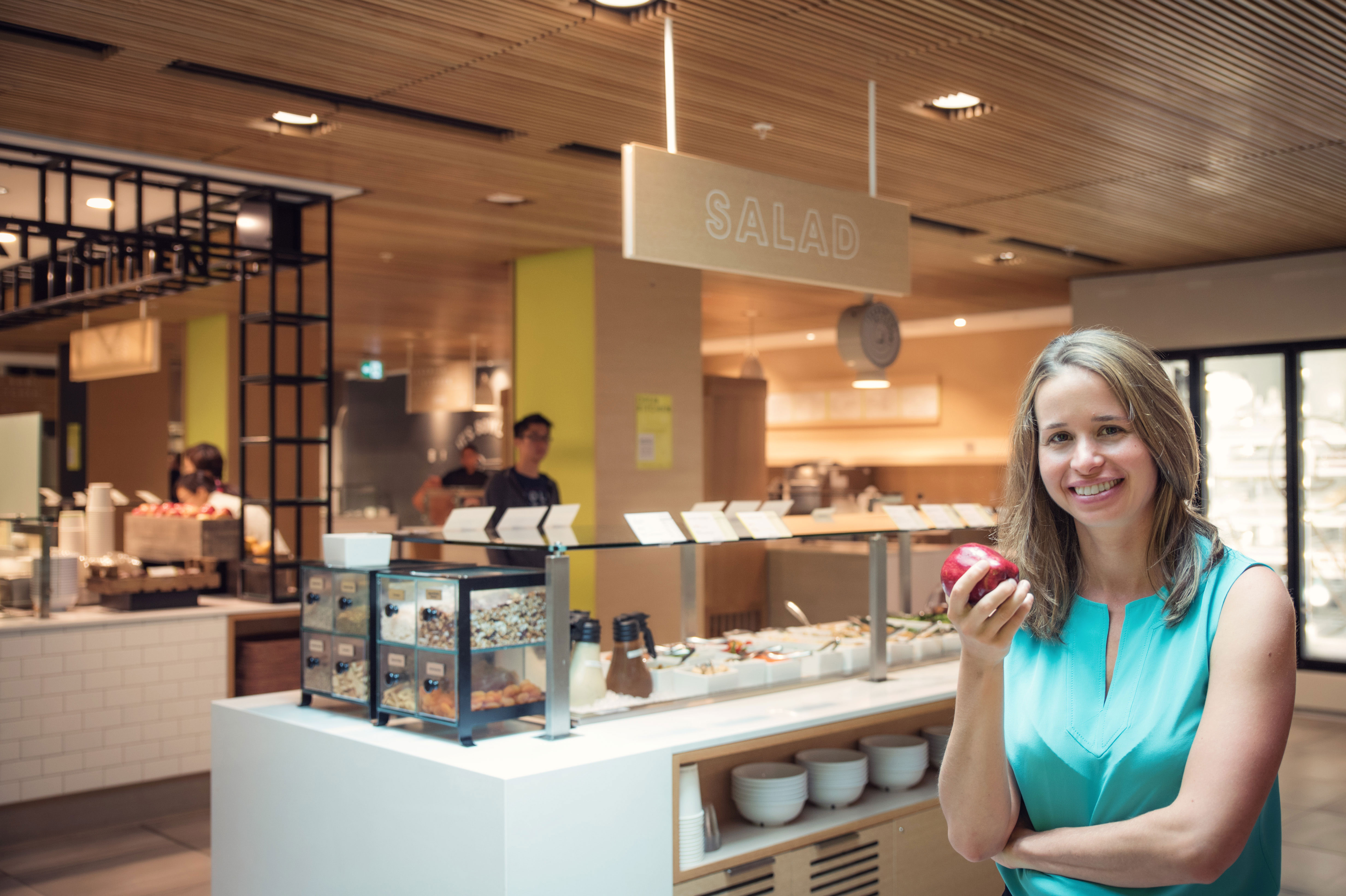
Are you passionate about nutrition, public health and food systems? Do you see food systems as a pathway to dismantling systemic barriers and creating equity within society?
The Bachelor of Science in Food, Nutrition and Health explores the production and processing of food to its marketing, consumption, and impact on community and individual health. The program prepares socially responsible students for a wide-range of science-based careers that align with their values including public health, nutrition, medical school, and graduate studies.
In the program students are encouraged to customize their studies to create a degree that balances required science courses with subjects they’re interested in such as social justice, climate change, and sustainability.
What you learn in Food, Nutrition, and Health
The Bachelor of Science in Food, Nutrition and Health has five different majors to choose from.
Dietetics
The Dietetics program is a professional program planned to meet the accreditation standards for the dietetics profession in Canada, and is the only dietetics program offered in British Columbia. You’ll explore general biological and social sciences courses, as well as specialized dietetics courses like basic and applied human nutrition, food and food systems management, and professional dietetic practice.
As a registered dietitian, you’ll improve and promote health through optimized food and nutrition, and fill a variety of roles in nutrition care, management, or population and public health.
Food Science
In the Food Science program, you will discover the chemistry and microbiology of food, its nutritional and sensory properties, and how it is engineered and processed for consumption. You will also explore concepts and controversies in nutrition, how to prevent food-borne illness, and how land, food, and community fit together.
Food, Nutrition, and Health
In the Food, Nutrition, and Health major, students explore the economic, ecological, social, and technological components of managed landscapes, agrifood systems, and communities comprising the land, food, nutrition, and health continuum. You can customize your degree as you study a broad range of topics related to applied nutrition and the science of nutrition.
The Food, Nutrition, and Health program gives you the flexibility to pursue your interests while gaining a deeper knowledge of issues related to food production, food security, and the role of nutrition in disease prevention. Choosing from a wide variety of electives, you’ll study a broad curriculum as you prepare for a career in the food and health sectors.
Nutritional Sciences
In Nutritional Sciences, you will build a strong foundation in basic and applied human nutrition as you delve into a broad range of topics, from community nutrition to how our bodies actually metabolize and use nutrients. You’ll explore opportunities to integrate nutrition with your interests in other areas within the fields of health and science, such as population and public health, and international nutrition.
The program will equip you to continue your education at the master’s and doctoral levels, or to pursue a career in nutrition or health research, or in research and development-related industries. Graduates can also further their studies in the health professions and veterinary sciences.
Food and Nutritional Sciences
Food and Nutritional Sciences is a competitive double major, combining the core degree requirements of the Food Science and Nutritional Sciences programs. You’ll discover the chemistry and microbiology of food, its nutritional and sensory properties, and the function of nutrients in health and disease.
Students graduate ready for a career in the food and nutrition industries or graduate-level study in health sciences.
Student scoop

“There are countless paths that lead towards being a physician and none are better than the others – however, studying Nutritional Sciences at UBC was perfect for me. The structure of the first two years in the program allowed me to complete the Biology, Chemistry, and Physics courses necessary for a solid science foundation…Most specifically, the Faculty of Land and Food Systems gave me many opportunities to work on collaboration, leadership, and problem-solving – important attributes for a medical student.”
– Brenna H. Read about Brenna’s experience as a student in Nutritional Sciences program.
Why choose Food, Nutrition, and Health?
Students choose the Bachelor of Science in Food, Nutrition, and Health because they can explore relevant, complex issues facing today’s world related to food security, climate change, sustainability and land use from both Indigenous and Western perspectives. Throughout the program, you gain integrated knowledge of food science, nutrition, and human health to contribute towards healthier and safer food choices for our world.
You get to be part of a small cohort within a large institution, where you have the friendly and supportive Food, Nutrition, and Health community as well as the extensive opportunities and resources that UBC offers. There’s also the ability to customize your program with flexible program requirements and a wide variety of electives.
What can you do after graduating?
Graduates from the Bachelor of Science in Food, Nutrition, and Health are highly employable in diverse roles, with the majority working in the health care system.
Graduates from the program go into careers such as dentistry, nursing, midwifery, rehabilitation sciences, education, food system management, naturopathy, fitness, food service, publishing, pharmaceuticals, medicine, rehabilitation sciences, and veterinary medicine.